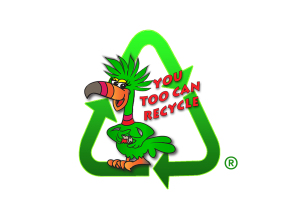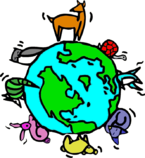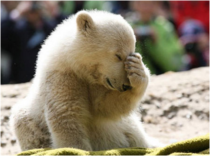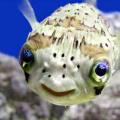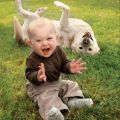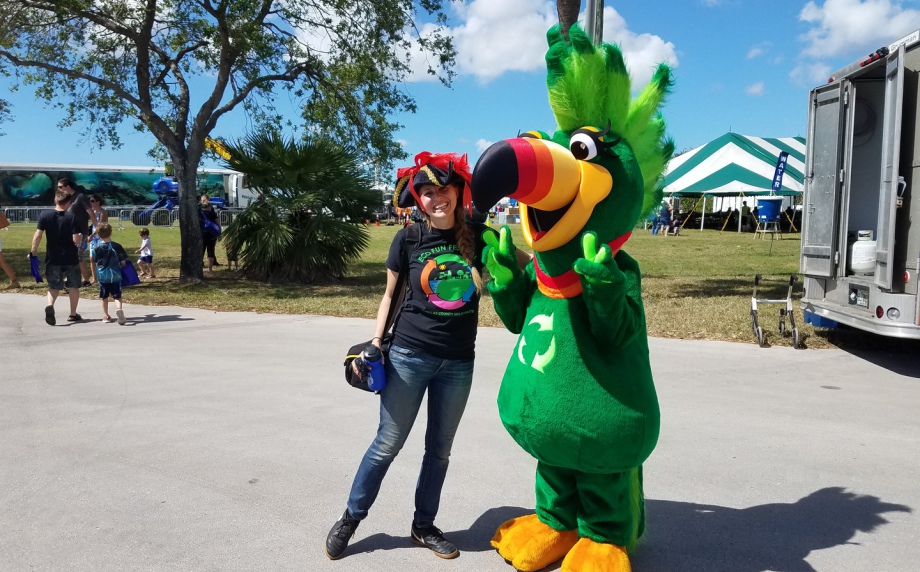
Do it for the Animals!
It is clear to see that we share this planet with many different animals. However, because we do not take care of our planet and instead have polluted it (dirtied the planet) and depleted it of most of its natural resources (used up trees/water that they need), these poor animals are now becoming extinct (dying).
For this reason, we should all recycle and join in to help save our little friends.
A local vet office reported over 7,000 calls a year concerning trash-related incidents
and their officers regularly rescue animals trapped or hurt by waste.
As owners go directly to vets and many injured wild animals may never be found, it is estimated that this figure is much higher.
Here are some preventable incidents (accidents) they have dealt with
- A fox cub with its head stuck in a wheel hub.
- A badger cub with a plastic can holder embedded in its neck.
- A cat that lacerated its paw on some broken glass.
- A dog with its tongue caught in a discarded can.
- A hedgehog with its head wedged in an empty tin.
- A seal with fishing net around its neck.
How dirtying everything with garbage hurts animals…
Litter (trash/garbage) can be very harmful to wildlife. Discarded fishing lines can trap the legs, wings, or necks of birds. A fishhook may become stuck in a bird's throat. Water birds suffer lead poisoning when they accidentally swallow small lead fishing weights. Broken glass can cut the feet of all animals such as dogs, cats, foxes, coyotes, or badgers and unbroken bottles present a hazard to various small animals. Lizards often crawl inside bottles or cans to bask warm interior, to seek protection or search for food; but they may find it difficult to squeeze out again and can die of overheating. Small mammals in search of food often get their heads caught in the openings of jars. Replacing lids on bottles and jars before discarding can help prevent animals from becoming entrapped. Birds, fish, and mammals may be ensnared by plastic six-pack holders. This can be prevented by cutting up the plastic rings so that they do not become traps.
What you can do to help
Protecting animals from harmful rubbish is easy – dispose of your rubbish responsibly.
- Recycle and reuse
- Otherwise put it in a bin.
Everyday objects can become hazards
- Balloons
Animals can eat them and choke or become impacted.
- Cut balloons up before putting in the bin.
- Don’t release balloons as they can land anywhere.
- Chinese lanterns
Chinese lanterns , also known as sky lanterns, can seriously injure animals.
- Containers and cans
Animals looking for food can get trapped in cans or injured by sharp edges.
- Clean and empty containers.
- Pinch cans shut and cut containers in half.
- Recycle where possible.
- Elastic bands
These can wrap around small animals and beaks of birds. If swallowed they can cause choking.
- Reuse bands when possible or cut them open before putting in a bin.
- Fishing tackle
Animals can get entangled in line and hooks can pierce skin or be swallowed.
- Glass
Broken glass can cause serious injury and animals can get trapped in jars.
- Clean and recycle glass.
- Plastic bags
Animals can climb inside and suffocate, or eat them and choke.
- Tie bags in a knot before recycling.
- Plastic can holders
Animals can get entangled, and suffer deep wounds or choke.
- Always cut the loops before recycling.
Animals can become our best friends that love us unconditionally (no matter what) and all animals, not just our pets, really depend on us to make sure they aren't injured by the waste we throw away. Animals also need a place to live and good food and water just like we do. Why not be their best friends too by showing them how much we love them by recycling and being careful with our waste and how much we use so it doesn't destroy their home or food...
